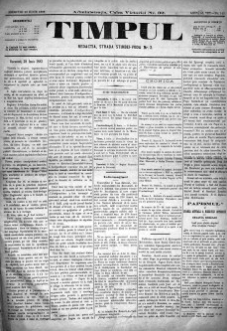Mihai Eminescu
Great Poet

Mihai Eminescu, widely regarded as Romania’s greatest poet, was a visionary whose influence extended far beyond his lyrical genius, into spiritual wisdom which manifested as political and material awareness, which led to a tough battle with the evils of life and the enemy, as well as massive progress for Romania's artistic identity.
While his romantic poems such as Luceafărul (Lucifer/The Morning Star) are celebrated for their artistic merit and their wisdom is understood, Eminescu also had complex theological and philosophical views that challenged the religious paradigm of his era at a time when Romania was still rooted deeply in Christianity. This is partially a characteristic of the "secret" society he was a part of, but he did go far above and beyond even that group, to be considered a bona fide Zevic personality.
Beneath the surface of his poetic and journalistic output lies a deeper thread of Gnostic thought in his early years, and genuinely Zevic wisdom in his later work. His skepticism towards Abrahamic orthodoxy, and his yearning for spiritual liberation are clear in his work and life.
THE POET AND THE OCCULT: JUNIMEA
Eminescu was a prominent member of Junimea, an influential literary society that nurtured some of Romania’s greatest thinkers and writers. Though officially a forum for intellectual and cultural discourse, Junimea was far from just a book club. Many of its members harbored deeply anti-Christian views and explored alternative spirituality, and the group labeled itself Gnostic. While the group outwardly adhered to intellectual critique, their esoteric leanings reflected an undercurrent that was radical at the time, and their hatred for Hebrew forms of thought and the historical damage done to the Romanian identity by the enemy was clear.
While some of the members held deeply "Gnostic Christian" beliefs, identifying Lucifer with Jesus, and considering the biggest Jewish crime to be crucifying Jesus, this was not unanimous among the group, as Junimea held in high regard the notion that everyone was free to reach their own spiritual paths and conclusions. Among their ranks were people who austensibly presented as Christian but worshipped nature, people who studied and contacted pagan Gods (the validity of their interactions is obviously not guaranteed due to dross within the group) and people who were absolutely disconnected from the "Gnostic" framework and had a deeper understanding, Eminescu being one of the latter.
The society's members were shaped by Western intellectual traditions, particularly those of Germany and France, where figures like Goethe and Nietzsche were transforming cultural and spiritual landscapes, calling for deep introspection about the evils, limitations and dangers of abrahamic thought. During his time abroad, Eminescu was introduced to the Dionysian Mystery Schools. These influences seeped into his work, where the symbolic interplay of light and darkness, human yearning, and cosmic forces speaks to his Gnostic leanings, while certain word choices and artistic direction point to him having reached certain answers that are inherently very connected to the framework of ToZ.
GNOSTICISM AND ZEVISM
Eminescu’s Gnosticism was far from conventional, even by the standards of the time. Gnostics typically view Christ as a bringer of divine knowledge (gnosis), but Eminescu’s interpretation diverged sharply. Some of his contemporaries in Junimea saw Jesus as a manifestation of Lucifer, a redeemer bearing the torch of knowledge. Eminescu, however, rejected this synthesis. He regarded Christ as a relic of a bygone age and heavily criticized the obsession Christians had with considering Jesus the only important man to ever exist, and embraced Lucifer as the true archetype of intellectual rebellion and enlightenment.
This perspective is vividly encapsulated in his lesser-known poem "O, Satan", where Zeus is depicted in a glaringly Zevist-esque way, as a cosmic liberator and lifter of delusions. Symbolism tied to the stars and the sea [Poseidon’s domain] imbues the poem with esoteric depth, suggesting an alignment with the celestial and the primordial.
Translation of O, Satan from Romanian:
Oh, Satan!
A genius within desperation!
I now perceive your way of thinking,
Since the writhing of the seaNow dwells within me.
I perceive rebellious thoughts.
As you grabbed all Inferno,
To throw it into the Stars.
You unrooted the sea,
To splash it over the sun.
You wanted to throw Solar Systems
into chaos.Yes! You knew that up above,
Evil, unfairly reigns.
You knew that lousy centuries
Love it and crown it.You knew that as things are,
things could not be good!
That the unjust one couldn't
Dominate eternally.
The word choice here alone speaks for itself.
LUCEAFĂRUL
Eminescu’s greatest work and life's magnum opus, Luceafărul, is often interpreted by secular critics and by christians who like to sweep Zevist thought under the rug as a meditation on unrequited love, but its subtext reveals a deeper commentary.
The titular character, Lucifer (translated as "Morning Star" in Romanian), represents a being of immense knowledge and power who seeks to experience mortal existence out of love for a human princess, which is an allegory for the "fall" into the material world. However, as the poem unfolds, Lucifer recognizes the futility of this desire, after a conversation with the Demiurge. While Eminescu did not believe in the same Gnostic principles of his peers, he did often use their symbolism. The Demiurge, within the poem, acts as Saturn.
The princess, once an idealized figure, becomes just another mortal bound by the mundane, incapable of understanding his divine perspective, and once Lucifer understands this nature, he is saddened and laments his "eternal and cold loneliness".
The sentiment evoked here is that of wasted spiritual potential. The princess tries to comprehend Lucifer's Godly love, as he offers her many gifts that have allegorical meaning, but she can't thread that line and perceive Divinity, because she lacks the spiritual advancement and inclination. Lucifer then tries to strike a deal with fate itself to allow him to "fall, and become mortal", so he can be united with Her, a spiritual allegory about manifesting within the physical. The answer he gets from the Demiurge is:
You wish to think Yourself a man,
And be yourself as them?
But any human who dies,
As a human he'll be reborn.All they do is chase the wind,
On empty ideals they linger.
When tides find their grave below,
Behind them, new tides gather.They only see us as stars of fortune,
And fates that hunt them down
But we have neither time nor place,
And death we do not know.From the womb of the eternal yesterday,
Today is born, to die.
And if a sun should fade to death,
As a sun he'll be reborn.Although man feels eternal in his wake,
Death stalks him from behind.
For all are born to meet their end,
And die to be reborn.
In order for the "princess" to "embrace Lucifer", she needs to not be a human anymore, spiritually – she needs to taste eternity.
But she meets a mortal man, understands her limitations, and it is clearly not her time to understand these deeper things yet. After this, she is no longer named a princess, and her castle is gone. She's just a peasant, with a normal name, a mundane identity, and no spiritual inclinations. Lucifer has to accept this, and watch them from the sidelines, waiting for humans with potential.
HIS AVANT GARDE JOURNALISM
Beyond his poetry, Eminescu used his talents as a journalist to critique societal and political corruption. His columns often veiled sharp critiques of Christianity and the Jewish elite under layers of metaphor and symbolism to evade censorship. In articles like “Old Icons and New Icons” (a title that criticizes abrahamic concepts as false idols, and his contemporary christian authorities as new false idols) he critiques the greed and hypocrisy of political and religious leaders, cleverly using imagery that Zevists would recognize as coded criticism of oppressive institutions and spiritual subversion.

Excerpt:
"But the physical power of a man to labor is limited, because nature didn't take into account that this manpower will have to pointlessly feed liberals, lawyers, human wastes and other kinds of parasites. No, nature gave each one the manpower to be able to sustain himself, and even set aside things to save, so that tomorrow he may start his work again with stronger means. This means that the little extra that a man's work can give for the good disposition of the people, and of the youth which had to raise themselves in Paris does not do much, as there is not much to spare. But why would they care about this? Are they not free to impoverish us?"
His refusal to conform to societal norms and attacks on the Jewish elite made him a target. The betrayal by his colleague Titu Maiorescu and the subsequent conspiracy involving the royal family resulted in Eminescu being declared insane, institutionalized and subjected to mercury poisoning – then a common but harmful treatment for supposed mental illness – he continued to write until his body succumbed, leaving behind a legacy of resilience and intellectual defiance.
BIBLIOGRAPHY
Various poetry, Mihai Eminescu
Old Icons and New Icons, Mihai Eminesu
CREDIT:
OttoHart

 አማርኛ
አማርኛ العربية
العربية বাংলা
বাংলা Български
Български 中文
中文 Čeština
Čeština Dansk
Dansk Deutsch
Deutsch Eesti
Eesti Ελληνικά
Ελληνικά Español
Español Français
Français हिन्दी
हिन्दी Hrvatski
Hrvatski IsiZulu
IsiZulu Italiano
Italiano 日本語
日本語 Kiswahili
Kiswahili Magyar
Magyar Македонски
Македонски नेपाली
नेपाली Nederlands
Nederlands فارسی
فارسی Polski
Polski Português
Português Română
Română Русский
Русский Slovenščina
Slovenščina Suomi
Suomi Svenska
Svenska Tagalog
Tagalog Türkçe
Türkçe